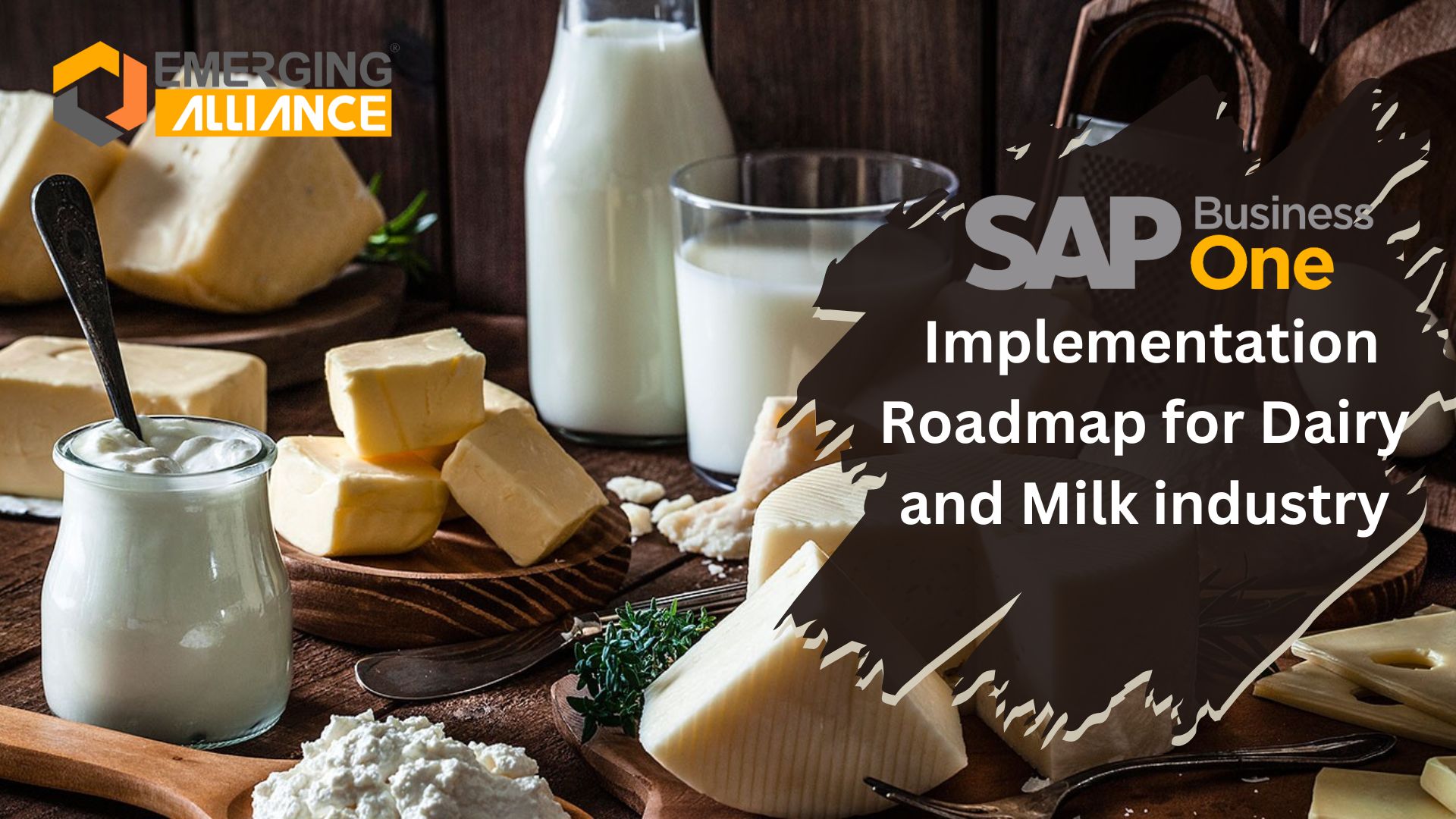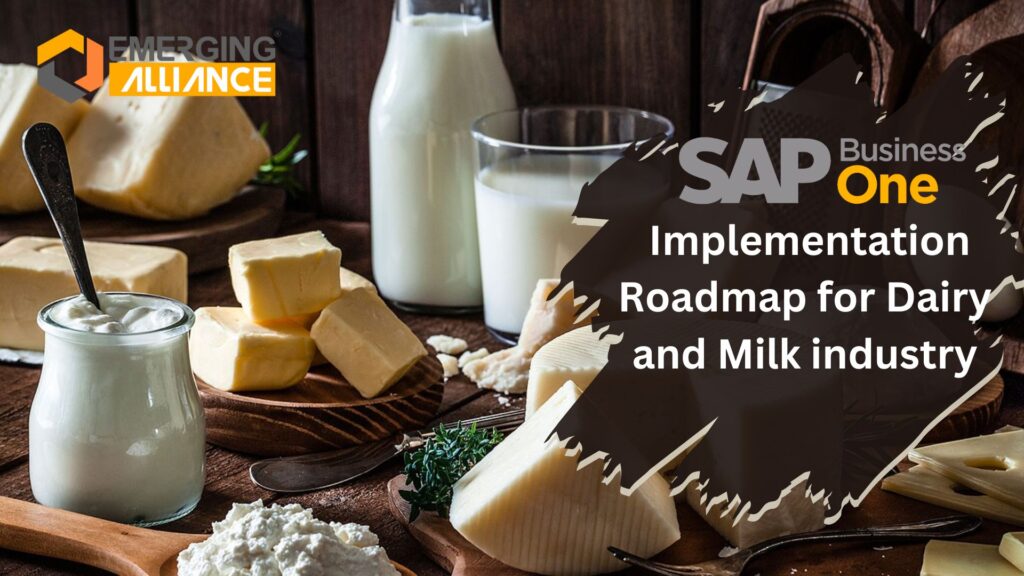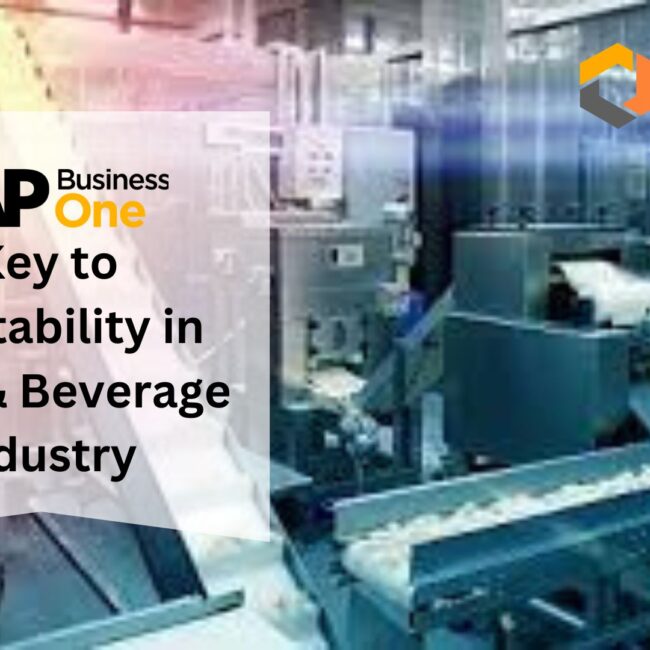
SAP B1 Implementation Roadmap for Dairy and Milk industry

SAP B1 for Dairy and Milk industry: A Path to Operational Excellence
Implementing SAP Business One (SAP B1) in the Dairy and Milk industry is a transformative step towards streamlining operations, enhancing quality, and driving growth. However, successful implementation requires a strategic approach tailored to the unique needs of the dairy business. From managing perishable goods to ensuring compliance and optimizing supply chains, SAP B1 offers comprehensive solutions. This roadmap outlines the critical steps for implementing SAP B1 in a dairy and milk business.
Assess Business Needs and Goals
Identify pain points and define clear objectives for the SAP B1 implementation.
- Evaluate Challenges: Analyze existing issues such as inventory mismanagement, supply chain inefficiencies, and quality inconsistencies.
- Define Goals: Set measurable goals, such as reducing waste, improving delivery times, and enhancing compliance.
- Stakeholder Input: Engage key stakeholders, including operations, quality control, and finance teams, to align objectives.
Plan the Implementation Scope
Establish the scope and timeline of the SAP B1 implementation.
- Process Mapping: Identify the specific processes to be digitized, such as inventory tracking, production planning, and CRM.
- Customization Needs: Determine any industry-specific customizations, such as batch tracking or dairy-specific compliance modules.
- Timeline: Set realistic timelines for each phase of the implementation to avoid disruption.
Choose the Right Implementation Partner
Partner with experts who understand the unique requirements of the dairy industry.
- Industry Expertise: Select a partner with experience in implementing SAP B1 for dairy and milk businesses.
- Support Services: Ensure the partner provides post-implementation support, training, and maintenance.
- References: Check testimonials or case studies to gauge the partner’s expertise.
Data Preparation and Migration
Cleanse and migrate critical data to SAP B1 for seamless integration.
- Data Cleansing: Remove duplicate, outdated, or inaccurate data to ensure quality.
- Data Mapping: Map existing data fields to SAP B1 modules, such as inventory, production, and finance.
- Backup: Create a secure backup of all data to prevent losses during migration.
Configure and Customize SAP B1
Tailor SAP B1 to meet the specific needs of the dairy and milk business.
- Module Setup: Configure core modules such as Inventory Management, Production Planning, Quality Control, and CRM.
- Custom Features: Implement custom functionalities for batch tracking, perishability alerts, and supplier management.
- Integration: Connect SAP B1 with existing systems, such as IoT devices for milk quality monitoring or fleet tracking.
Test the System
Identify and resolve any issues before full deployment.
- Pilot Testing: Run SAP B1 in a controlled environment with select processes.
- User Feedback: Gather feedback from employees on system usability and performance.
- Bug Fixing: Address any issues, glitches, or inefficiencies uncovered during testing.
Train Employees
Ensure all employees are equipped to use SAP B1 effectively.
- Role-Specific Training: Offer training tailored to different roles, such as production managers, quality controllers, and logistics teams.
- Workshops: Conduct hands-on workshops to familiarize employees with SAP B1 features.
- Documentation: Provide user manuals and guides for reference.
Go Live
Launch SAP B1 across the business operations.
- Phased Rollout: Implement SAP B1 in stages, starting with critical processes like inventory and production.
- Monitoring: Closely monitor performance and user adoption during the initial days.
- Support: Have the implementation partner or IT team on standby to address issues promptly.
Post-Implementation Support
Ensure long-term success and system optimization.
- Regular Updates: Keep SAP B1 updated with the latest features and security patches.
- Feedback Loop: Continuously gather feedback from employees to improve system efficiency.
- Maintenance: Conduct regular audits to identify and address any performance bottlenecks.
Benefits of a Successful Implementation
- Streamlined Operations: SAP B1 automates key processes, reducing manual effort and errors.
- Enhanced Traceability: Tracks products from farm to consumer, ensuring transparency and quality.
- Improved Efficiency: Optimizes inventory and production planning, reducing waste and costs.
- Compliance Assurance: Simplifies adherence to food safety and regulatory standards.
- Data-Driven Decisions: Provides real-time insights for informed decision-making.
SAP B1: The Key to Dairy Business Success
Implementing SAP B1 in the dairy and milk business is a strategic investment that drives operational excellence and customer satisfaction. By following a well-structured roadmap, businesses can ensure a seamless transition to this powerful ERP system. With the right planning, execution, and support, SAP B1 will revolutionize your dairy operations and position your business for sustained growth.
Want to learn more about how SAP Business One can transform your business operations? Get in touch with us today! We’re here to provide you with the information and support you need to streamline your processes and achieve your business goals: https://www.emerging-alliance.com/
Want to speak to an expert? Fill in the form below, and we will be in touch with you shortly!







